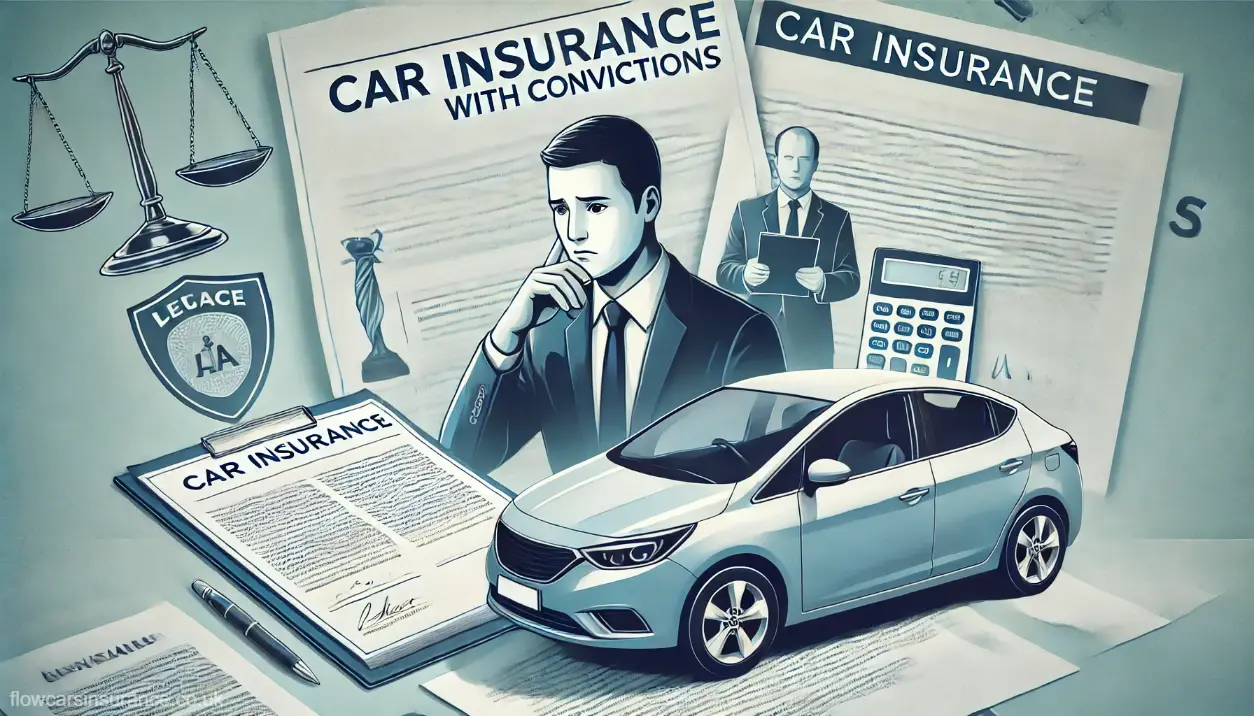Key Takeaway: Being convicted of a motoring or criminal offence can dramatically alter your ability to obtain affordable car insurance in the UK.
Insurers consider convictions—both motoring and non-motoring—to indicate higher risk, often resulting in significantly increased premiums or outright refusal of cover.
This guide explores how convictions affect your premiums, how long endorsements stay on your licence, your legal disclosure obligations, and strategies for finding suitable cover.
1. How Convictions Affect Your Premiums
A driving conviction signals to insurers that you pose a greater risk of future claims. Even minor offences such as speeding can trigger substantial premium hikes.
- Drivers with criminal records can see average premium increases of around 59%.
- Serious offences, such as drink-driving or drug-driving, often result in premiums doubling or tripling immediately after conviction.
The severity, recency, and type of conviction all factor into how insurers calculate your risk profile. Recent, serious offences lead to the highest surcharges.
2. Endorsements on Your Driving Record
When convicted of a motoring offence, courts impose penalty points (endorsements) on your licence. These endorsements remain accessible to insurers for either four or 11 years, depending on the offence:
- 4-year endorsements (valid for 3 years) apply to most offences, including reckless or dangerous driving (DD codes) and disqualifications.
- 11-year endorsements (valid for 10 years) cover all drink-driving (DR codes) and drug-driving (DG/DR80 codes), plus causing death by careless driving under the influence (CD40–CD70 codes).
For non-drink/drug offences, the four-year period may count from either the date of conviction or the date of the offence itself.
3. Disclosure Obligations under the Rehabilitation of Offenders Act
Under the Rehabilitation of Offenders Act 1974, convictions become “spent” after criminal rehabilitation periods tied to the sentence. This means that after a certain period, you are no longer legally required to disclose those convictions on insurance applications.
- For motoring convictions, endorsements are not considered spent until the rehabilitation period expires.
- Spent convictions do not need to be disclosed, but for motoring offences, the endorsement period still applies, meaning insurers will often check your driving history and take that into account in their risk assessment.
4. Strategies for Finding Suitable Cover
- Be Transparent: Always disclose your convictions. Failing to do so can result in your insurance being invalidated.
- Specialist Insurers: Some insurers specialize in high-risk drivers, including those with motoring or criminal convictions. They are more likely to offer competitive quotes.
- Compare Multiple Quotes: Use comparison websites to find the best rates. Some insurers may not penalize minor offences as harshly as others.
- Increase Your Excess: Higher voluntary excess can lower your premium, though this means you’ll pay more out-of-pocket if you need to make a claim.
- Take a Driver Rehabilitation Course: Some insurers offer discounts if you complete a driving course after a conviction.
- Wait for Conviction Expiry: If your conviction is close to expiring, it may be worth waiting before purchasing insurance to get the best rates.
5. Conclusion
Having a motoring or criminal conviction can significantly increase your car insurance premiums or make it harder to find cover.
However, by understanding the impact of convictions, knowing how long endorsements last, and adhering to the Rehabilitation of Offenders Act, you can make more informed decisions.
Always be honest about your history, shop around, and consider working with a specialist insurer to secure the best deal. With time and effort, you can find coverage that fits your needs and your budget.
